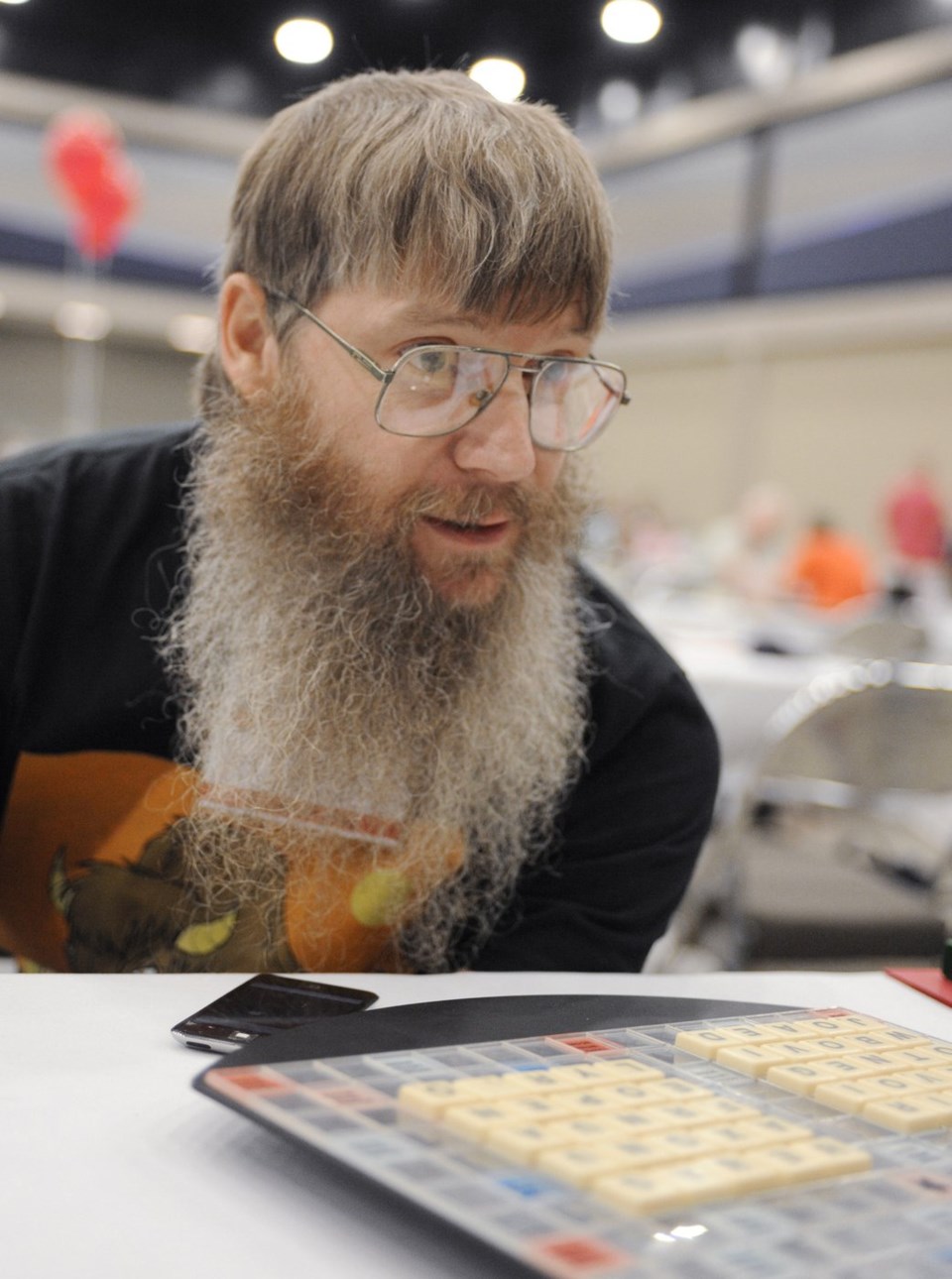WELLINGTON, New Zealand (AP) — A New Zealand man playing his first-ever competitive game in Spanish, a language he doesn’t speak, has won the board game’s Spanish-language world title — despite the language barrier that stopped him from chatting with his opponents.
Nigel Richards, a professional player who holds five English-language world titles, won the Spanish world Scrabble championships in Granada, Spain, in November, losing only one game out of 24. Richards speaks no Spanish and started memorizing the language's Scrabble word list a year ago, his friend Liz Fagerlund -– a New Zealand Scrabble official -– told The Associated Press.
“He can’t understand why other people can’t just do the same thing,” she said. “He can look at a block of words together and once they go into his brain as a picture he can just recall that very easily.”
In second place was defending champion Benjamín Olaizola of Argentina, who won 18 of his games -– and does speak Spanish.
Richards has done this before. In 2015, he became the French language Scrabble world champion, despite not speaking French, after studying the word list for nine weeks. He took the French title again in 2018.
Recognized in international Scrabble over his three-decade career as the greatest player of all time, Richards’ Spanish language victory was notable even by his standards, other players said. Forced to adjust his gameplay to compensate for different tile values in English and Spanish Scrabble, Richards also had to contend with thousands of additional seven, eight and nine letter words in the Spanish language -– which demand a different strategy.
But what challenge remains for a player who has dominated the game in his native tongue? Richards in 2008 was the first player ever to hold the world, U.S. and British titles simultaneously -– despite having to “forget” 40,000 English words that do not appear in the American Scrabble word list to triumph in the U.S.
His victories are legendary in the Scrabble community and his games analyzed in YouTube videos watched by tens of thousands. Scrabble does not require players to know the definitions of words, only what combinations of letters are allowed in a country’s version of the game, but native speakers have “a huge leg up,” American Scrabble player Will Anderson said in a video summarizing Richards’ Spanish win.
His mother, Adrienne Fischer, told a New Zealand newspaper in 2010 that Richards did not excel at English in school, never attended university and took a mathematical approach to the game rather than a linguistic one.
“I don’t think he’s ever read a book, apart from the dictionary,” she said.
Fagerlund said Richards impressed her when he arrived at his first Scrabble club meeting in Christchurch, New Zealand, aged 28. Two years later, in 1997, he cycled 220 miles (350 kilometers) from Christchurch to the city of Dunedin, won the New Zealand title on his first attempt and cycled home again.
What motivates Richards, who now lives in Malaysia, is a mystery because he never speaks to reporters.
“I get lots of requests from journalists wanting to interview him and he’s not interested,” Fagerlund said. “He doesn’t understand what all the hoo-ha is about.”
Charlotte Graham-mclay, The Associated Press



